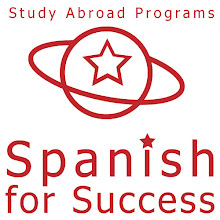
Amazon.com books and CD's on Medical Spanish
By Russo Mutuc
In the USA, working or participating in the medical field, many professionals and students have come across plenty of Spanish speaking patients. Generally in this industry, there already many challenges when providing patient care or services, it is critical that the health care providers be able to communicate effectively and relay the information accordingly to the patients. Because of the complexity of the medical industry, communication barrier is one challenge that many professionals and students are being faced with. The reality is miscommunication leads to many problems, especially, when dealing with health issues. To tackle the situation, students at their early phases of training, have been encouraged by their universities to participate in classes with Medical Spanish.
Medical Spanish has grown in popularity in the last few years. One in particular contributing to the growth is the programs abroad. Language Spanish programs, which traditionally offer general type Spanish classes, have incorporated more of a technical, observation, volunteer, communication based Spanish for Medical courses. Living and learning abroad enhances the communication skills of the language student in a shorter period of time. Many of the Universities encourage training students to take an elective abroad as a means of acquiring more skills in Spanish, and to hone in the main terminologies and practices of Medical Spanish. Some universities have also started to offer their in-house programs.
To further help assist health care professionals in learning the terminologies of Medical Spanish, new technology has been incorporated. Gadgets like PDA’s are a quick access for information and references.
Overall the benefits of learning Medical Spanish are very rewarding to the health care industry, when dealing with Spanish speaking patients. It saves time, cost effective for the hospitals, plus communication is clear and concise, and less legal issues.
Today's medical professionals must adapt to meet the challenges that come with the growing diversity in the health care population demographic. Some of these challenges are not only linguistic but also cultural at their root. This often necessitates that health care providers learn to clearly and effectively communicate with patients and their relatives in a second language.
The reality for many health care professionals is that Spanish is the first language of a large percentage of the population served. Miscommunication and misunderstanding of critical information can have a negative impact on every day patient care, not to mention situations where matters of life and death are at stake. Possessing the ability to speak basic Spanish will reduce the need for providers to enlist the services of an interpreter for common everyday communication tasks.

Our Study Abroad program emphasizes and integrates both components via classroom exercises and the Immersion Method. Immersion Method is when a student is surrounded by nothing but the culture and are constantly speaking Spanish in places such as local shops, markets, gyms, bars, restaurants, school, and with their host families. Students find themselves applying their newly acquired skills on an everyday basis with appropriate feedback from their professors as well as the people around them. This method allows the student to hone their abilities in a supportive and relaxed environment.

1) The student finds himself or herself immersed in the language and the culture.
2) Classes are on a smaller scale (max of 6 students per class) which lowers the teacher to student ratio and allows the instructor to give greater personalized attention to each student.
3) Classes are 4 hours a day. Since classes are covering a single subject, more hours do not necessarily translate into more effective learning. Students need time to absorb and integrate what they have studied.
4) Each student has the option to stay with host families and thus gain insights into everyday life, values and assumptions Latino culture. These are, in some ways, just as important to learning as understanding the technical details of the language itself.
5) There are plenty of enjoyable activities such as biking, hiking, swimming, running, aerobics, yoga, dance classes, cooking classes, white water rafting, kayaking, snorkeling, fishing, horseback riding, surfing, etc... available through the program.
6) Classes taken with language programs can be transferred for credit depending on your schools requirements.
